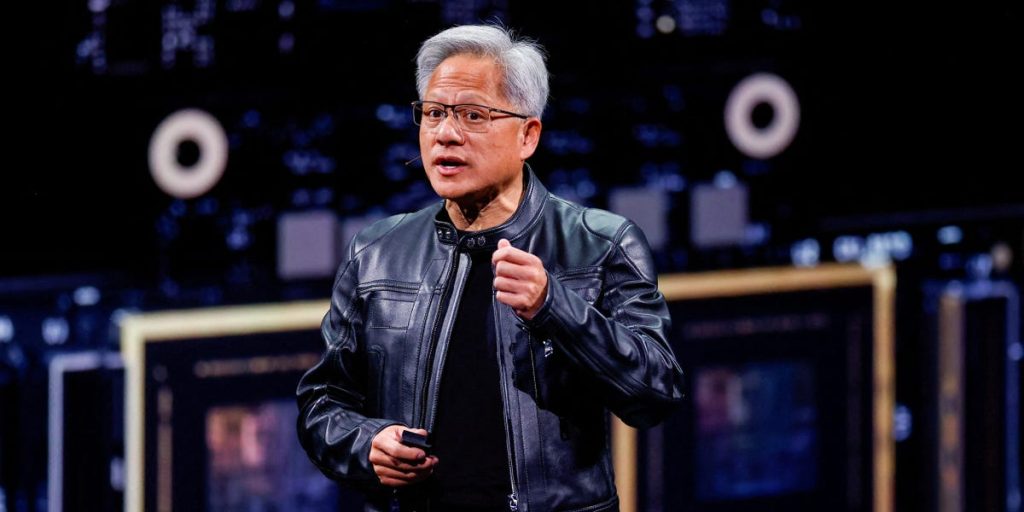Nvidia said it plans to resume deliveries of its H20 AI chips to China because of assurances from the US government that shipments will be approved.
Nvidia, in a blog post dated July 14, said the company “hopes to start deliveries soon” to China, given these assurances.
This announcement comes days after Nvidia CEO Jensen Huang met with President Donald Trump and policymakers to talk about the US’s domestic AI infrastructure.
Huang is in China now and has had meetings with government officials and industry leaders in Beijing, per Nvidia’s blog post.
The announcement from Nvidia indicates a sharp reversal from the Trump administration’s earlier hard stance on chip exports to China.
The US Department of Commerce did not immediately respond to a request for comment. A representative of Nvidia said the company had no further comment beyond the blog post.
In Asia, where Nvidia’s supply chain is concentrated, Hong Kong, Taiwan, and Chinese stocks reacted positively to Nvidia’s announcement.
On Tuesday, the Hang Seng Tech Index rose as much as 2.2%, and data center operators like Beijing Sinnet Technology rose as much as 7.6%. TSMC, a key Nvidia supplier, is up 1.37%.
A multibillion-dollar hit to Nvidia
In April, the Trump administration told Nvidia it would need special licenses to sell to Chinese customers. At the time, Nvidia warned it could take a multibillion-dollar hit on earnings from the administration’s restrictions on H20 chips.
Nvidia’s H20 chips are a China-specific variant created specifically to comply with Biden-era export controls on chips sent to China.
At the time, Nvidia, in a regulatory filing, said that the Trump administration sees the H20 license requirements as a means to address the risk of China developing its own supercomputer.
Related stories
In an interview with CNN that aired Sunday, Huang said that the US needs access to China for AI dominance.
“There’s plenty of computing capacity in China already,” Huang said. “They don’t need Nvidia’s chips, certainly, or American tech stacks in order to build their military,” he said.
Huang added that for the US to be an AI leader, US tech has to be available to all markets, including China, he added.
Banning H20 chips made ‘little sense’: analysts
Analysts saw the April licensing requirement as essentially a ban on H20 exports to China.
“It should be noted that no licenses for GPU shipments into China have ever been granted and that the stated reason is concern over potential use or diversion of these chips for supercomputers in China,” Jefferies analysts led by Blayne Curtis wrote in an April note.
Bernstein analysts said banning the H20 chip made “little sense.”
“H20 performance is low, well below already-available Chinese alternatives. A ban essentially simply hands the Chinese AI market over to Huawei,” they wrote.
Chinese companies have been reducing their reliance on Nvidia chips, according to the analysts.
Chinese companies have also engineered ways for Huawei and other locally designed chips to be networked together.


